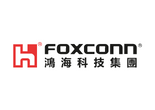Foxconn Technology Group, traded as Hon Hai Precision Industry Ltd on the Taiwan Stock Exchange, is the world’s largest contract electronics manufacturer. While Foxconn’s primary manufacturing operations are based in Taiwan. It has more than 200 subsidiaries and branch offices across over 20 countries.
The company has been in the limelight as it is the largest supplier of Apple, the world’s largest technology company by market capitalisation. Recently, as Apple is shifting away from China, Foxconn is also moving production elsewhere, closing factories in the country. Vietnam is one of the countries benefitting from this move.
The business model of Foxconn Technology Group
While the company’s official name is Hon Hai Precision Industry Ltd, it is internationally referred to as Foxconn Technology Group. Terry Gou established it in 1974 as a supplier of electrical components to manufacturers.
The company opened its first factory in China in 1988 and has stayed in the market for nearly five decades now largely due to customer loyalty borne out of its cheap but quality production methods.
Foxconn came into prominence in the early 2000s after it displaced Asus to win a contract to manufacture motherboards for Intel. It was also the sole manufacturer for Apple for the longest time until the iPhone maker decided to diversify its operations and gave out contracts to other manufacturers.
Fast-forward to 2022, Foxconn Technology Group is now a tech manufacturing giant, with clients such as Microsoft, Amazon, HP, Intel, IBM, Dell, and Sony, to name a few. Apple is Foxconn’s biggest customer, with around 50% of the company’s revenue generated by manufacturing iPhones, iPads, and Macbooks. Almost 70% of all iPhones around the world are made by Foxconn alone, which makes it core to the business of Apple.
Foxconn Technology Group’s core product line-ups are — smart consumer electronics, cloud and networking, computing products and components and others. The company owns more than 57,700 patents and has R&D facilities and manufacturing plants in China, India, Vietnam, Brazil, Mexico, and the United States, among other countries.
Foxconn’s business hinges on original equipment manufacturers (OEMs), either as a foundry or as a component supplier. The company has become infamous in the tech industry due to its cheap manufacturing capabilities. It has five key tenets: technology, speed, quality, flexibility, and cost efficiency.
The cost-effective structure of Foxconn comes from the mass manufacturing of components. For OEMs, this is beneficial as it is cheaper for companies like Apple to contract Foxconn instead of constructing its own manufacturing facility. Whereas Foxconn can manufacture certain white-label items (without Foxconn branding) for various companies which then brand the product as their own. This significantly brings down costs for all stakeholders.
Over the past years, the company has acquired several other brands. Some notable names that are subsidiaries of Hon Hai Precision Industry are Sharp Corporation, Belkin, FIH Mobile, and Smart Technologies.
Performance of Foxconn Technology Group
In 2023, Foxconn Technology Group reported annual revenue of $198 bn. Net profits were NT$142.1 bn, resulting in earnings per share of NT$10.25, a 16-year high.
For 2024, the company is upbeat and raised its outlook to “significant” growth from a neutral view. Foxconn Chairman Young Liu said at an online earnings conference that they see “very strong demand for AI servers” from clients. Liu expects revenue growth of more than 40% for 2024.
At Nvidia’s GTC conference in March, Foxconn showcased two key: Nvidia-based AI servers with liquid cooling systems and an AI autonomous driving controller using Nvidia’s Orin X processor. After that, shares have achieved all-time highs.
“Having seen the massive rallies since January 2023 for other Taiwan AI linked names, momentum / concept investors are likely chasing the potential for a similarly enormous rally in Hon Hai, now that it has joined the ranks of the ‘Taiwan AI stocks’. However, we believe one should remain relatively cautious from here upwards,” opined analyst Vincent Fernando of Zero One who publishes on Smartkarma.
Foxconn stocks, listed as Hon Hai Precision Industry Co Ltd (2317.TW), are up 72.73% since the beginning of 2024 (as of May 29, 2024).
What does the future hold for Foxconn?
While electronics remain the focus, Foxconn Technology Group is also active in medical device manufacturing. It manufactures products for patient monitoring, ECG devices, orthopaedic devices, digital health devices, and specialised medical equipment, to name a few.
More recently, Foxconn forayed into electric vehicles (EV), and is part of the consortium MIH, releasing two electric vehicle concepts. Foxconn chairman Young Liu said that it wants to replicate its success as a contract manufacturer for electronics in the EV sector, and maybe make cars for Tesla in the future. Foxconn is already manufacturing EVs for US-based Lordstown Motors and has partnered with Taiwanese automaker Yulon Group to build an electric SUV.
“In the EV industry, we are resolute about CDMS: This means contract design and manufacturing service. This commitment will not change. In the next 10 years, Hon Hai in the EV industry will redefine CDMS in the automotive field and continue to promote vertically integrated technology services,” said Lui in a statement.
Hon Hai Precision Industry entered the EV market at an opportune time, as US restrictions on China have hobbled other EV makers.
“Simply put, if one wants to be serious about developing the best possible EV, you need advanced chips, and thus the latest US chip restrictions put one of Hon Hai’s main sources of potential competition — China-based EV companies who could try and emulate Hon Hai’s EV platform business model — at a major disadvantage going forward,” said Fernando.


 Australia
Australia China
China India
India Indonesia
Indonesia Japan
Japan Malaysia
Malaysia Philippines
Philippines Singapore
Singapore South Korea
South Korea Taiwan
Taiwan Thailand
Thailand Vietnam
Vietnam

